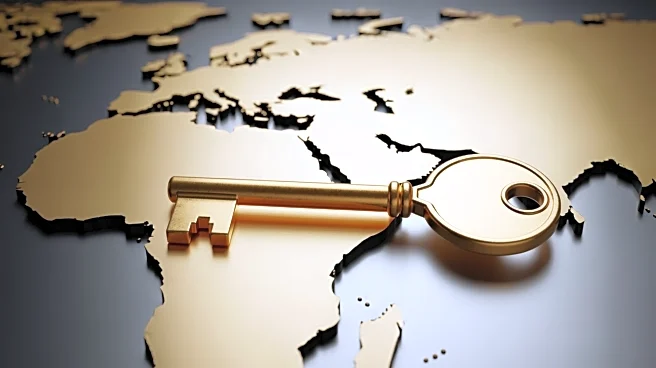What's Happening?
Israel is exploring new diplomatic opportunities in the Middle East, aiming to leverage recent regional developments to reshape the geopolitical landscape. The editorial highlights the potential for Israel to transition from a strategy of confrontation
to one of engagement, using diplomatic 'carrots' to complement the 'sticks' previously employed. This approach comes amid a backdrop of shifting alliances and the formation of a new government in Lebanon, chaired by President Joseph Aoun and Premier Nawaf Salam. The editorial suggests that Israel's strategic engagement could lead to significant changes in regional dynamics, particularly in its relations with neighboring countries and groups such as Hamas and Hezbollah.
Why It's Important?
The potential shift in Israel's diplomatic strategy could have profound implications for Middle Eastern politics and stability. By pursuing engagement over confrontation, Israel may foster more cooperative relationships with its neighbors, potentially reducing tensions and fostering peace in a historically volatile region. This approach could also influence the broader geopolitical landscape, affecting U.S. foreign policy and international relations. Stakeholders such as regional governments, international organizations, and global powers stand to gain from a more stable Middle East, which could lead to enhanced economic opportunities and security cooperation.
What's Next?
Israel's next steps will likely involve diplomatic outreach to key regional players and international allies to build support for its new strategy. The success of this approach will depend on the responses from neighboring countries and groups, as well as the broader international community. Observers will be watching closely to see if Israel can effectively balance its security concerns with diplomatic engagement, potentially setting a precedent for conflict resolution in the region.
Beyond the Headlines
This development could signal a broader shift in Middle Eastern diplomacy, where traditional adversaries might explore new avenues for dialogue and cooperation. The ethical and cultural dimensions of this shift could lead to a reevaluation of long-standing hostilities and the potential for new alliances. Long-term, this could contribute to a more integrated and peaceful Middle East, with implications for global security and economic stability.
















